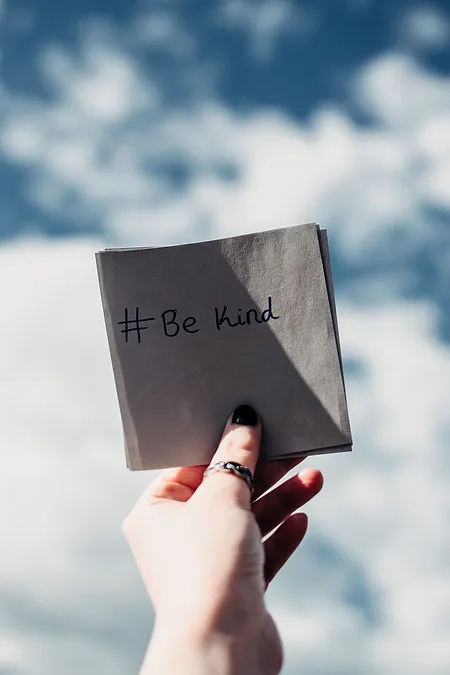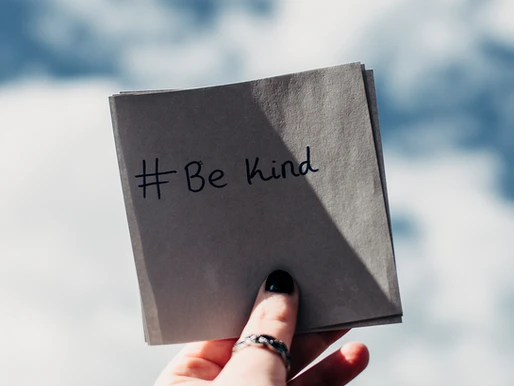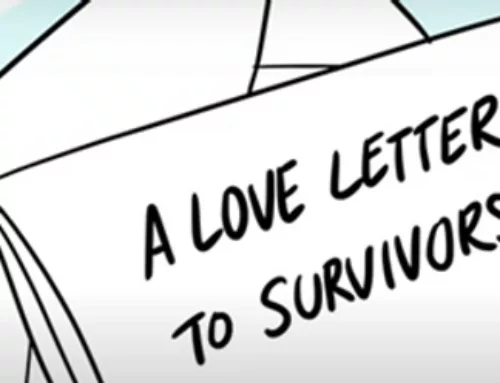Today, we want to draw your attention to a subject that continues to be resounding within our world today, mental health! Yes, today is something we can celebrate knowing how we’ve flipped these negative issues to the positive side since the recent events that have taken place in our world. Though the pandemic was difficult, it increased our awareness of the ongoing issues surrounding mental health. Whether the pandemic caused you to reflect on some things that surfaced, or you found the slower times alleviated some of those already hovering anxieties, we can now recognize how to get better from them! Let’s continue to understand how to be more attentive to these issues with around us, and also for ourselves.
Becoming aware of who’s around you

We know, you’ve heard it before, mental health issues are prevalent in our world today. Even before the pandemic, higher numbers of people were struggling with their mental health. Now, the number of people battling various mental health disorders, such as anxiety, depression, bipolar, post-traumatic stress, etc. has increased that much more. We have the opportunity to be more attentive to people with these battles, as these internal battles reflect on everything else going on in someone’s life. It can be as simple as being aware in your sphere of influence. By being aware of those around us and extending our help where we can, we can help people get out of these unhealthy cycles!
Remember from our blog previously posted this summer, Block Parties: A Chance to Check In? We discussed the transition into get-togethers after the pandemic. Below are some signs for those who may be needing support, specifically related to an abusive situation:
- Reduced ability to concentrate on conversations
- Emotions of feeling sad or down
- Being withdrawn from the activities they previously enjoyed
- Excessive worrying over small things
- Noticing body language & affect & how it’s changed from what they were like before
Most of these signs actually don’t require for a person to verbalize that they may not be feeling themselves. Through observation, and the extra time taken in kindness, you have the chance to save someone from a situation that may be abusive. Simple ways to check in could be:
Most of these signs actually don’t require for a person to verbalize that they may not be feeling themselves. Through observation, and the extra time taken in kindness, you have the chance to save someone from a situation that may be abusive. Simple ways to check in could be:
- Start an open conversation, sharing something about your life, and giving the person the same interest and concern into their situation.
- If the person seems reserved and does not want to be as open as you, let them know you are available to listen, or will check in on them at a later time. This lets them know you are a safe space – even if it takes a few tries, or a simple ask to coffee! A personal invitation helps a person open up and know they can trust you through what they’re going through.
- Furthermore, if there doesn’t seem to be an open door for this but you are sure something is off with them, you can connect them to us or review these resources below.
Putting to action your involvement in someone else’s life can improve their outcomes for the better. Most people are not aware someone wants to be there for them until you make yourself available to them, and this is why observation or extension of care is so helpful!
What about when you don’t have capacity to extend yourself for someone else?
This topic is just as important to talk about! Mental space is something that can be taken up by various things in a person’s life. Think of the things that might be on your mind in addition to what you’re handling for yourself, these things could be; stressors at your job, family member issues, an unresolved issue with a friend, or other commitments you may have on your mental to-do list. All these things can build up and cause mental overload – when your senses take in more information than your brain can process. Another way to describe this is burnout, which is not what we want you to have! A representation of this would be your ears losing a portion of hearing when the music is too loud – it’s just more than what you’re capable of bearing! So, how do you know if you’re dealing with this?

Here are some of the signs of mental overload:
- When you feel anxiety, sometimes you may not even know where it’s coming from, it could just feel like a constant state of irritability or pressure. Or maybe someone you trust has told you that you seem more reactive than normal. Anxiety is a signal that you need a step back.
- Furthermore, a panic attack is a cognitive reaction to overload. High amounts of adrenaline like this can have impacts on your physical body and lead to burnout. A positive way of viewing this would be a serious check engine light on your car! It needs to get fixed, or it will breakdown. Your brain and body are both telling you to let them rest, so that a breakdown doesn’t happen
- Depression is also a mental struggle. Depression we sometimes can’t put a finger on where it’s coming from, but it can be an ongoing issue for some, and for others, the aftermath of overstimulation in the brain.
It’s normal to have physical signs of overload, again it’s actually a good thing to recognize you’re in overload and do them differently next time. So, how might you ease it?
- REST! This can do a lot for you to slow your mind down and bring you back to your best self. Though it can be hard to get out through a mental burnout, it will work wonders for your brain and help you feel more connected!
- Go for a walk. Movements for the body can have a great impact on regulating yourself again properly.
- Give yourself time to recover. Let yourself feel the motions of working through these times. You’ve heard it before, but it really is okay not to be okay!

Thank you for taking the time to read through how to become more aware for yourself and those around you. Being more observant and self-aware is a skill that is easier to do once mastered, and ultimately has so many benefits! Click below for more resources.
- Alberta Family Violence Hotline (24/7) at 310-1818 or 211
- if it’s a minor (under 18), you could suggest Kids Help Phone text 686868
- if they don’t need an immediate resource, suggest they call SAiF for an appt. Please note, we’re not a 24/7 service but we’re happy to book appts for them (or if you, as a friend, want some coaching on how to handle this type of situation, we can walk you through that as well). We can also safety plan – 780.460.2195 x301


